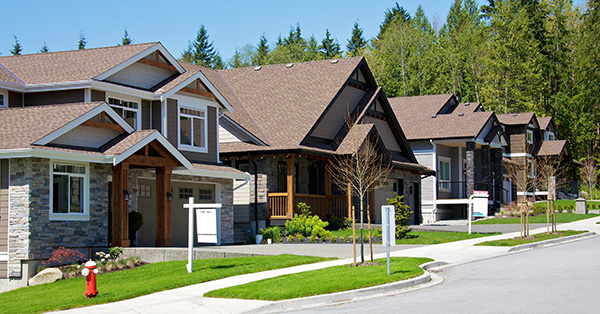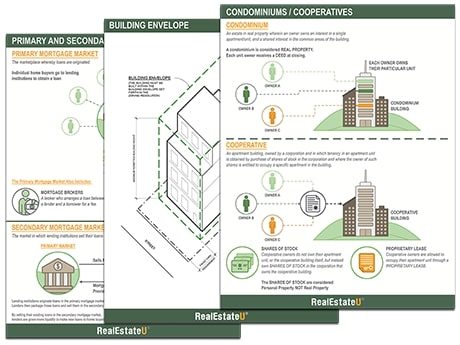
Houses to renovate are a great way to create your dream home or make the most of your current one. It is important to understand your goals and to work with your contractor on a plan to achieve them.
The first thing to do is determine what your budget is and how much time you have to invest in a renovation project. You may want to complete the entire renovation at once. However, if you do not have a plan and estimate how much you are willing to spend for each stage, you could end up spending more than you planned or even run into unexpected issues that you cannot afford to fix.
It is also important to look at the prices of similar homes that have recently sold in your neighborhood. Renovations that are far above the norm for your area can be tempting, but they will make your home harder to sell later.

You and your family are taking a significant risk by increasing the value your home. To protect your higher-valued home, you'll need to upgrade your insurance.
Hire an architect or designer for the design of your renovation plan before beginning any physical work. This will save you a lot of money and frustration in the long run as well as ensure that the remodelled property meets your specific needs and aesthetic desires.
Before starting the renovations, you will need the board of your co-op to grant you a permit. You will need different permits depending on the extent of your renovation.
A permit may be required for your roof, foundation work, siding, windows, etc., depending on the type of project you're undertaking. The biggest projects will be the ones you tackle and they'll have an impact on any other renovations taking place at your home.

Once you have completed the larger projects, you can begin smaller and easier ones. You will be able to complete each section quickly and with minimal disruption in your daily routine.
If you are looking for a durable flooring, make sure it is easy to clean. Choose laminate, vinyl or hardwood for the majority of living and bedroom spaces. Ceramic tile or marble for bathrooms and in kitchens is also a popular choice.
If you're not sure what kind of flooring you want, it's a good idea to talk with a few local contractors and visit different showrooms to get a sense of what is available and what will suit your specific space. The flooring you choose can have a significant impact on the overall look of your renovation.
FAQ
How do I calculate my interest rate?
Market conditions influence the market and interest rates can change daily. The average interest rate over the past week was 4.39%. To calculate your interest rate, multiply the number of years you will be financing by the interest rate. For example, if $200,000 is borrowed over 20 years at 5%/year, the interest rate will be 0.05x20 1%. That's ten basis points.
How many times do I have to refinance my loan?
This depends on whether you are refinancing with another lender or using a mortgage broker. In either case, you can usually refinance once every five years.
Is it better buy or rent?
Renting is generally cheaper than buying a home. It's important to remember that you will need to cover additional costs such as utilities, repairs, maintenance, and insurance. The benefits of buying a house are not only obvious but also numerous. You will have greater control of your living arrangements.
What are some of the disadvantages of a fixed mortgage rate?
Fixed-rate loans tend to carry higher initial costs than adjustable-rate mortgages. You may also lose a lot if your house is sold before the term ends.
How much money should I save before buying a house?
It depends on how long you plan to live there. If you want to stay for at least five years, you must start saving now. However, if you're planning on moving within two years, you don’t need to worry.
Statistics
- Private mortgage insurance may be required for conventional loans when the borrower puts less than 20% down.4 FHA loans are mortgage loans issued by private lenders and backed by the federal government. (investopedia.com)
- This means that all of your housing-related expenses each month do not exceed 43% of your monthly income. (fortunebuilders.com)
- Over the past year, mortgage rates have hovered between 3.9 and 4.5 percent—a less significant increase. (fortunebuilders.com)
- When it came to buying a home in 2015, experts predicted that mortgage rates would surpass five percent, yet interest rates remained below four percent. (fortunebuilders.com)
- It's possible to get approved for an FHA loan with a credit score as low as 580 and a down payment of 3.5% or a credit score as low as 500 and a 10% down payment.5 Specialty mortgage loans are loans that don't fit into the conventional or FHA loan categories. (investopedia.com)
External Links
How To
How to Manage a Property Rental
While renting your home can make you extra money, there are many things that you should think about before making the decision. We will show you how to manage a rental home, and what you should consider before you rent it.
Here are the basics to help you start thinking about renting out a home.
-
What are the first things I should consider? Take a look at your financial situation before you decide whether you want to rent your house. If you have debts, such as credit card bills or mortgage payments, you may not be able to afford to pay someone else to live in your home while you're away. Your budget should be reviewed - you may not have enough money to cover your monthly expenses like rent, utilities, insurance, and so on. It might not be worth the effort.
-
How much does it cost for me to rent my house? Many factors go into calculating the amount you could charge for letting your home. These factors include your location, the size of your home, its condition, and the season. Remember that prices can vary depending on where your live so you shouldn't expect to receive the same rate anywhere. Rightmove shows that the median market price for renting one-bedroom flats in London is approximately PS1,400 per months. This means that you could earn about PS2,800 annually if you rent your entire home. That's not bad, but if you only wanted to let part of your home, you could probably earn significantly less.
-
Is it worth it? Doing something new always comes with risks, but if it brings in extra income, why wouldn't you try it? Make sure that you fully understand the terms of any contract before you sign it. Renting your home won't just mean spending more time away from your family; you'll also need to keep up with maintenance costs, pay for repairs and keep the place clean. Before signing up, be sure to carefully consider these factors.
-
What are the benefits? There are benefits to renting your home. There are many reasons to rent your home. You can use it to pay off debt, buy a holiday, save for a rainy-day, or simply to have a break. You will likely find it more enjoyable than working every day. Renting could be a full-time career if you plan properly.
-
How do I find tenants Once you've made the decision that you want your property to be rented out, you must advertise it correctly. Start by listing online using websites like Zoopla and Rightmove. Once potential tenants reach out to you, schedule an interview. This will help you assess their suitability and ensure they're financially stable enough to move into your home.
-
What are the best ways to ensure that I am protected? If you fear that your home will be left empty, you need to ensure your home is protected against theft, damage, or fire. You will need to insure the home through your landlord, or directly with an insurer. Your landlord will typically require you to add them in as additional insured. This covers damages to your property that occur while you aren't there. However, this doesn't apply if you're living abroad or if your landlord isn't registered with UK insurers. In such cases, you will need to register for an international insurance company.
-
You might feel like you can't afford to spend all day looking for tenants, especially if you work outside the home. You must put your best foot forward when advertising property. Post ads online and create a professional-looking site. Additionally, you'll need to fill out an application and provide references. Some people prefer to do the job themselves. Others prefer to hire agents that can help. It doesn't matter what you do, you will need to be ready for questions during interviews.
-
What happens after I find my tenant?After you've found a suitable tenant, you'll need to agree on terms. If you have a lease in place, you'll need to inform your tenant of changes, such as moving dates. If this is not possible, you may negotiate the length of your stay, deposit, as well as other details. Keep in mind that you will still be responsible for paying utilities and other costs once your tenancy ends.
-
How do I collect rent? When it comes to collecting the rent, you will need to confirm that the tenant has made their payments. If they haven't, remind them. Before you send them a final invoice, you can deduct any outstanding rent payments. If you're having difficulty getting hold of your tenant you can always call police. The police won't ordinarily evict unless there's been breach of contract. If necessary, they may issue a warrant.
-
What are the best ways to avoid problems? Although renting your home is a lucrative venture, it is also important to be safe. Consider installing security cameras and smoke alarms. You should also check that your neighbors' permissions allow you to leave your property unlocked at night and that you have adequate insurance. You should never allow strangers into your home, no matter how they claim to be moving in.